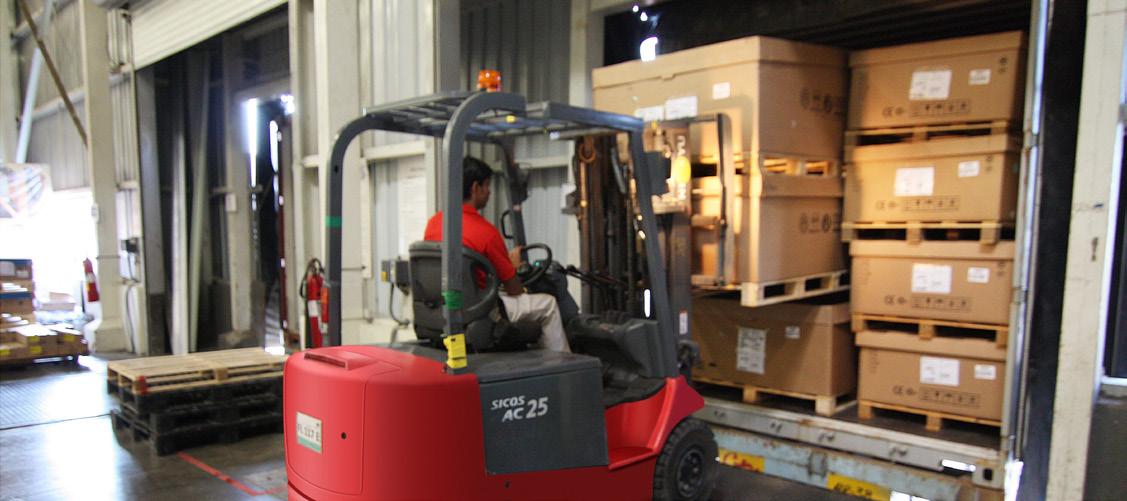
4 minute read
COVID-19: Economic recovery and resilience for small island developing states (SIDS) discussed at virtual meeting
The Hummingbird

FFor many small island developing states (SIDS), the economic impact of COVID-19 has been extremely painful, given the disruption on tourism and even the supply chain for some, adding to a decline in commodity prices for others, and constraints in health infrastructure on a broad scale.
This was one of several key takeaways from a recent virtual meeting of representatives from ECLAC Caribbean, the Eastern Caribbean Central Bank, the State of Hawai’i in the United States (US) and the United Nations Development Programme (UNDP).
Read More
Discussions centred on how the COVID-19 pandemic was depressing economic growth, job creation, increasing citizen insecurity, and challenging islanders’ capacity to provide health and education services particularly for the most vulnerable. For many, it is a major additional disruption to already stressed economies facing climate change and natural disasters, and increasing public debt.
Now, as the hurricane season is upon us, SIDS face additional challenges and must take action to mitigate against further social and economic disruption, in the context of limited fiscal space.
Attending for ECLAC Caribbean was Deputy Director, Dr. Dillon Alleyne, who reported that participants took note of the immediate challenges in deciding how far or how soon “locked down” islands could be reopened to visitors, given that there is no vaccine at the moment. They also discussed how to manage the economic impact of travel restrictions projected to be in place for the foreseeable future.
Islands are balancing efforts to contain the virus and prepare their community health facilities

for new potential cases, even as they work to open their economies and grapple with the immediate impacts on falling tourism revenue, loss of jobs, and negative growth.
The representatives agreed that best practices for reopening include establishing clear priorities and goals for each stage of the recovery. These include engaging stakeholders, ensuring transparency, increasing monitoring and testing, basing decision making on facts, using national and global best practices, considering a wide range of funding sources and focusing
on a need for speed. However, since tourism is mostly externally driven for many, their success depends also on rapid recovery elsewhere.
With their geographic and cultural contexts, islands must tread carefully as they negotiate an uncertain post-COVID-19 economic future. A consistent message is that, despite the threats, the affected islands see the crisis as an opportunity to steer future development in a direction that sustains and strengthens island communities. For islands, the discussion is not only about the economy, it's about building resilience in the context of sustainable development.
For islands heavily dependent on tourism or international trade for local income, COVID-19 created a particular challenge. Hawai’i has the lowest infection rate and the highest unemployment rate in the United States, while Caribbean states are suffering from the loss of crucial foreign exchange due to the closure of the tourism sectors, the decline in commodity prices and a high debt burden characterized by significant debt servicing costs. Speakers highlighted the necessity and opportunity to diversify economies over time, and to manage their tourism in a way that better benefits islanders. Speakers also highlighted such key opportunities as, the role of digitalization, the need to invest in the blue economy, and to transition to a low-emission and resilient infrastructure.
Digital access has been a lifeline during the pandemic. COVID-19 has accelerated the movement to digital and distance-based work, learning, and services, creating challenges and opportunities for islands. There is a clear need to address inequities in access to the digital economy. However, digitizing also opens the promise of transformational new frontiers for islanders in providing and accessing a range of goods and services from remote providers.
It was agreed during the virtual meeting that Islands can seize this opportunity by investing in broadband infrastructure, training and retooling for the digital economy and strengthening cybersecurity. Small island states are also large ocean economies and enhancing strategies to promote sustainable use of ocean resources is a major opportunity.
Climate change poses both an existential challenge and an opportunity to invest in local renewable energy and resilience infrastructure, and in naturebased solutions.
To support small island developing states, it is critical to implement the Sustainable Development Goals (SDGs) and the 2014 UN Samoa Pathway, which recognizes that SIDS are particularly vulnerable to external shocks due to their size and geography, and highlights the importance of commitments to support island sustainability and partnerships. In this regard the private sector should be incentivized to come on board as partners with the public sector, to address the SDGs especially where governments are highly indebted.





